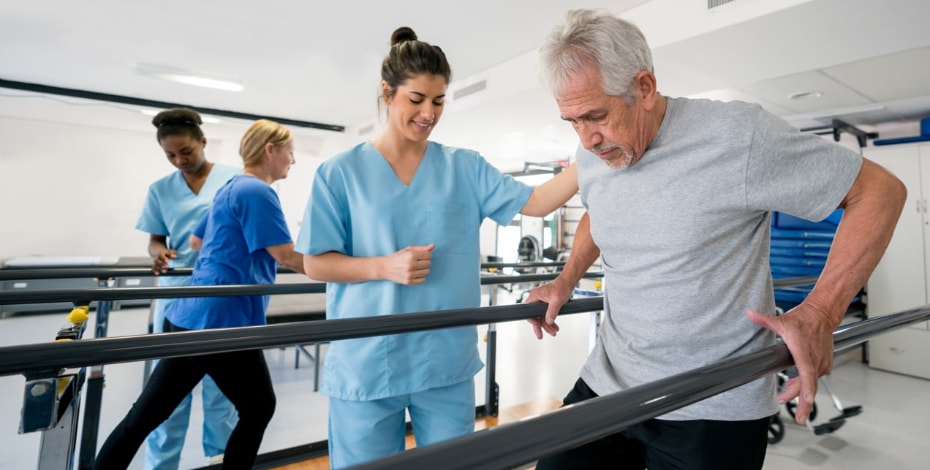
Motivating neuro patients

In November 2018, the NSW Neurology Physiotherapy group ran a panel discussion about motivation in rehabilitation. The main aim of the evening was to inform physiotherapists what they can do better to help motivate people when they are in rehabilitation. The group hosted the following panellists: Kathryn Millar, Adrian O’Malley, Daniel Wallekers, and John Garbutt.
- Kathryn had multi-level orthopaedic surgery to treat contractures of the hips and knees, which required several months of intensive therapy in a rehabilitation unit to regain functional mobility.
- Adrian had a stroke when he was 34 years old and spent five months in rehabilitation; he has recently been able to access therapy services again with NDIS funding.
- Daniel is a 26 year old who is continuing his rehabilitation following a traumatic brain injury, which happened when he was 22. He spent over a year in hospital doing rehabilitation with the Liverpool Brain Injury Unit.
- John had a stroke when he was 46 years old in 2003 and spent months in rehabilitation. He volunteers for research projects in the hunter region, private physiotherapy and most recently through NDIS funding. Almost 16 years post stroke he is still working on his recovery.
One key message that came out of the discussion was the importance of the physiotherapist and patient relationship. Kathryn talked about the reassurance she found in knowing that her physiotherapist was determined to help her find a solution to the problem of how to transfer in and out of a car again. The discussion also highlighted that patients were motivated when they felt like they were being treated by a ‘real person’ and when their personal goals were recognised, even if they might seem unachievable. Empathy, encouragement and good communication were also highlighted as important factors.
Also discussed were motivating factors, one of which was discharged from the hospital, and what the therapists’ role is after discharge when external motivators become more important. The main messages were about the relevance of practice, explanations of practice, objective feedback and goal setting.
John Garbutt also talked about the need for explanations, and to relate the exercise back to the impairments the person has and why this exercise is beneficial, for example, ‘this exercise is to achieve …’ or ‘this exercise will help to make you stronger in these muscles’.
This panel discussion highlighted that motivation in rehabilitation is critical in order for patients to see and know that change is happening. External motivation needs to be meaningful in order to achieve good patient outcomes long-term.
© Copyright 2025 by Australian Physiotherapy Association. All rights reserved.





